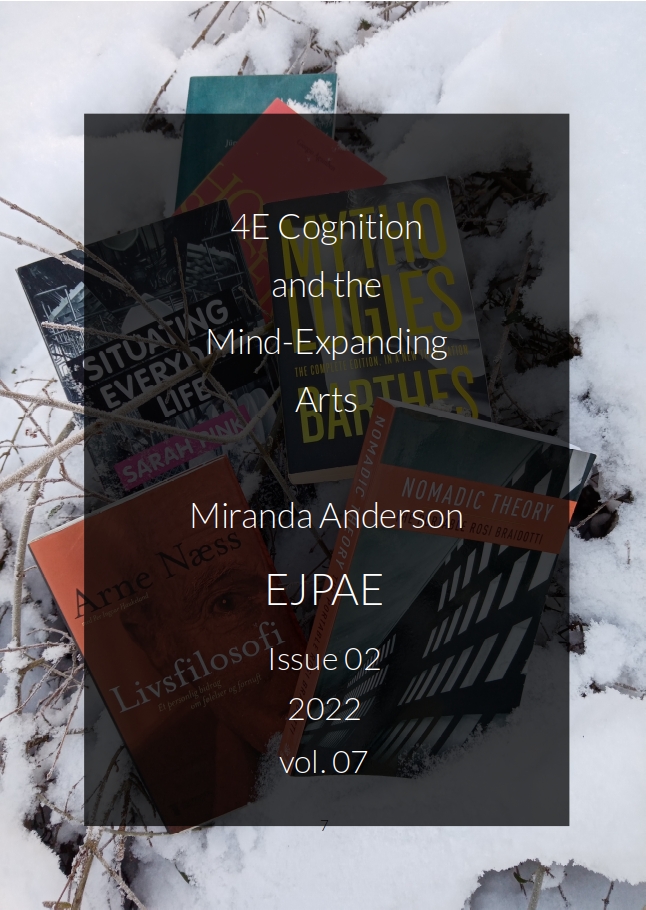4E Cognition and the Mind-Expanding Arts
DOI:
https://doi.org/10.5281/zenodo.7451462Keywords:
distributed cognition, extended mind, imagination, arts, predictive processing, contemporary artAbstract
Examining imagination, 4E cognition and the arts together expands our understanding of them all. 4E cognition is a framework that comprises the theories separately known as embodied, enactive, embedded, and extended cognition. This paper draws on research in cognitive science (including 4E and recent predictive processing approaches), ideas in phenomenology, and artworks from The Extended Mind exhibition (2019–20). The artworks offer diverse reflections on 4E cognition, as well as revealing personal, political and ethical benefits and issues predicated on a 4E cognition perspective. This approach further provides a way of defending the epistemic value of the imagination and of unpacking the four key puzzles associated with its relationship with the arts regarding its production of emotional response, imaginative resistance, and moral persuasion, and the paradox of our attraction towards horror and tragedy. The arts are a valuable mode of inquiry into the nature of cognition and neglect of their relevance negatively impacts understandings of the mind.

Downloads
Published
Issue
Section
License
Copyright (c) 2022 Miranda Anderson

This work is licensed under a Creative Commons Attribution 4.0 International License.
EJPAE provides immediate open access to all its published content. Users do not need to register or pay to read content.
https://creativecommons.org/licenses/by/4.0/
Authors of content published in European Journal of Philosophy in Arts Education (EJPAE) retain the copyright to their works. Content is free to be used by anyone as long as you "[...] give appropriate credit, provide a link to the license, and indicate if changes were made. You may do so in any reasonable manner, but not in any way that suggests the licensor endorses you or your use." and "No additional restrictions — You may not apply legal terms or technological measures that legally restrict others from doing anything the license permits." (from the Creative Commons licence agreement)
EJPAE does not charge any author or publication fees.
Authors are encouraged to deposit the final published version of their article for self-archiving (author's personal website) and/or archiving in an institutional repository immediately upon publication.




